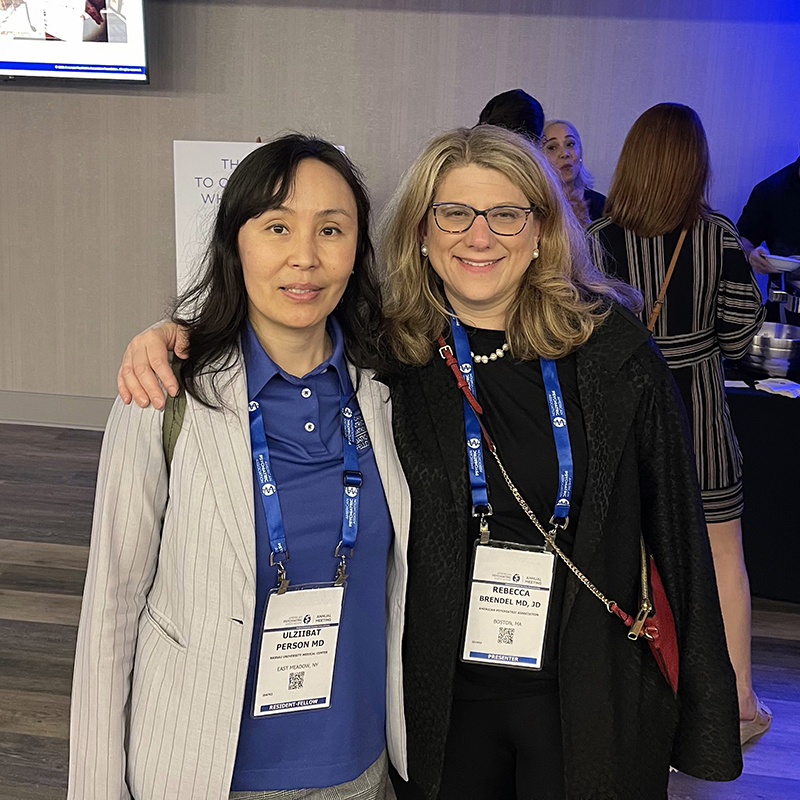Redefining Mentorship

Advocacy as the catalyst for mentorship, through the APA LEAD (Leadership, Equity, and Diversity) Institute.
The APA LEAD (Leadership, Equity, and Diversity) Institute provides resources and educational programs helps to foster our APA/APAF Fellowship trainees' leadership and DEI skills. This pilot program was launched in November of 2021 with 30 APA/APAF SAMHSA Minority Fellowship participants.
LEAD features a certification track with courses on cultural competence and structural and institutional racism and the Advocate/Protégé Program which focuses on mentorship and networking. The Advocates are APA leaders chosen from councils, caucuses, committees, or assemblies or are members of the board of trustees or board of directors. They are matched with one fellow and agree to communicate with them at least once a month for the duration of the program.
For protégé Dr. Ulziibat Shirendeb Person, a graduate of the psychiatry residency program at Nassau University Medical Center (NUMC), New York, the APA/APAF SAMHSA Minority Fellowship provided her the opportunity to expand her work into new environments. Thanks to the networking and career advice she received from her mentor, Dr. Rebecca Brendel, she will relocate to Hilo, Hawaii to advocate for underserved patients. She said her mentor also helped her develop leadership skills and hone how she works collaboratively in teams.
“People are learning from you, so being a good example is important. Along with setting boundaries and strategically communicating them,” she said. Her Advocate, Dr. Brendel, the current president of the APA, said she seeks to create "a broad landscape of possibilities, letting my protégés and mentees guide the way with their passion and what resonates for them.”
Dr. Shirendeb Person is originally from Mongolia and completed her Ph.D. in Japan. Her research centered around neuroscience and substance use disorders. Her forthcoming work explored the impact of COVID-19 on substance use.
Dr. Shirendeb Person remembers her engagement with the Advocate/Protégé program fondly. She said she had a lot in common with her mentor including a love for learning and seeking new ways of expanding their skillset and knowledge base. She advises future cohorts of the Advocate/Protégé program to set clear and honest goals and expectations when starting the mentoring relationship. Establish measurements and deadlines for tracking progress and analyze what tools you need to accomplish your objectives, she said.
Dr. Brendel advised mentees to lose their shyness: “If the relationship does not seem to be working, ask for help – either from the mentor/advocate, other mentors/ supervisors, or from the fellowship program administrative staff. Mentoring and advocating skills take deliberate learning and practice!”
